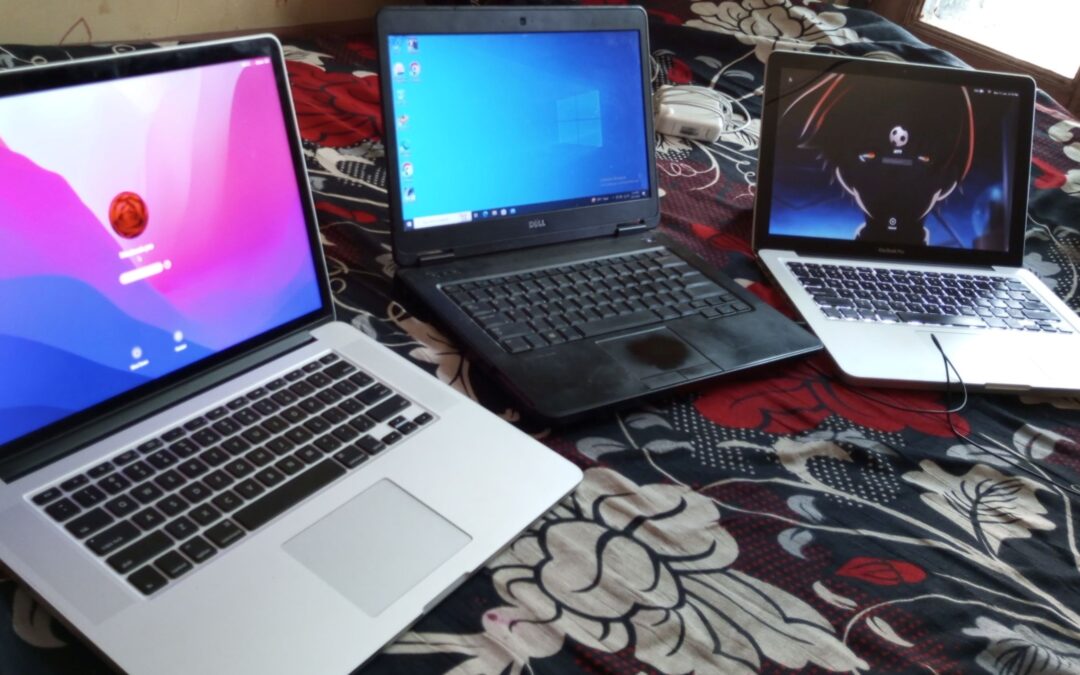Why Renting Laptops is Better Than Owning for Corporates
In today’s fast-paced corporate environment, technology drives productivity, client communication, and overall business performance. For decades, companies have followed a conventional norm: invest heavily in hardware, own it outright, and manage it internally for years. But as the speed of technological change accelerates, this traditional model has begun to show cracks. Forward-thinking organizations are increasingly turning to laptop rental solutions as a smarter option.
Laptop rentals are no longer just a stop-gap arrangement for short-term projects. From startups to established multinational corporations, businesses now recognize that renting laptops instead of owning them brings financial, operational, and strategic advantages.
This in-depth analysis reveals why renting is shaping up to be the future of IT infrastructure for corporates.
1. Lower Upfront Capital Investment
The most visible advantage of laptop rentals is cost control. Corporates often need to equip dozens, hundreds, or even thousands of employees with efficient laptops to maintain productivity.
-
Owning laptops requires a substantial upfront capital expenditure (CAPEX). For example, buying 200 business-grade laptops at ₹60,000 each means an immediate outlay of ₹1.2 crore.
-
Renting laptops, however, converts that large lump-sum purchase into a predictable monthly operational expense (OPEX). Instead of freezing capital in depreciating assets, funds can be directed toward areas that actually drive growth like marketing, research, or talent acquisition.
For organizations focusing on scaling operations, conserving liquidity and avoiding hardware-heavy investments is a clear win. With rentals, corporates gain access to the best machines without burdening their balance sheets upfront.
2. Tax Benefits and Accounting Advantages
From a financial perspective, renting laptops can also simplify accounting and provide tax advantages.
-
Rental costs are often fully deductible as business expenses, helping companies reduce taxable income.
-
Unlike owned laptops, which require depreciation tracking over several years, rented laptops are recorded simply as operating costs.
This reduces administrative complexity, simplifies audits, and provides a cleaner financial structure for organizations under stringent compliance environments.
3. Flexibility and Scalability for Growing Teams
In today’s corporate era, workforce requirements are fluid. One quarter may demand large-scale hiring for a project, while another might involve downsizing or temporary teams.
-
If laptops are purchased, companies risk either owning excess hardware during a slowdown or scrambling to purchase new machines when projects suddenly expand.
-
With rentals, organizations achieve unmatched flexibility. They can scale up or down based on immediate requirements without worrying about asset ownership, resale value, or storage headaches.
Startups in particular benefit from this model. A growing SaaS company can onboard 50 interns for a short project and return the machines later. Such flexibility prevents wasteful hardware investments and ensures agility.
4. Always Access the Latest Technology
One major challenge with ownership is technological obsolescence. Laptops typically have a functional life of 3–5 years, but business needs evolve much faster.
Owning laptops means:
-
Dealing with slow machines after a few years.
-
Spending heavily again on bulk replacements.
-
Maintaining mismatched hardware across departments, hampering IT management.
On the other hand, renting laptops ensures corporates always have access to the latest, high-performance systems aligned with industry standards. Providers frequently refresh inventory, so businesses can upgrade their fleets periodically without sinking capital. For industries requiring the latest specs—like software development, design, or data analytics—this is a game changer.
5. Reduced Maintenance and IT Overheads
Laptop ownership comes with hidden costs: maintenance, warranty management, upgrades, replacements, and technical support.
-
An in-house IT team might spend countless hours troubleshooting hardware issues.
-
Parts replacement, extended warranties, and accidental damage repairs add to expenses.
When laptops are rented, most service providers include IT support, repair, and replacement clauses. This shifts the burden away from corporates so internal IT resources can focus on strategic innovation instead of routine troubleshooting.
In essence, rentals outsource the headache of maintenance while ensuring employees always have functional devices.
6. Hassle-Free Asset Management
Consider the logistical challenges of owning hundreds or thousands of laptops in a typical corporate setting:
-
Asset tagging and audits
-
Tracking which employee has which device
-
Managing upgrades and end-of-life disposal
-
Ensuring compliance with software licensing
Rentals streamline this headache. Service providers usually handle inventory management, collection, redistribution, and disposal. This allows corporations to focus on their core business, not on asset lifecycle management.
7. Perfect for Remote and Hybrid Workforces
The post-pandemic corporate landscape has shifted toward hybrid and remote work models. Employees need reliable laptops but may be scattered across cities or even countries.
Renting laptops makes deployment easier:
-
Devices can be shipped directly to employees’ homes.
-
Once employees leave or projects finish, machines are collected back by the vendor.
-
IT teams don’t have to worry about transporting laptops across geographies.
For modern distributed teams, rental solutions align perfectly with organizational realities.
8. Enhanced Security and Data Control
Security is a top priority for corporates. Owned laptops, when lost or stolen, can expose sensitive business data and intellectual property. They also need to be sanitized before resale or disposal.
Rental providers help mitigate these risks with safeguards such as:
-
Pre-configured security setups
-
Device tracking
-
Data wiping policies after return
This helps maintain corporate cybersecurity standards while reducing the risk of data mishandling when devices change hands.
9. Better Budget Predictability
From a CFO’s perspective, budget stability is as valuable as cost savings.
-
Purchasing laptops means unpredictable future costs: sudden repairs, bulk replacements every few years, and fluctuating resale values.
-
Rental agreements, however, lock costs into fixed monthly or quarterly terms, making expenses highly predictable.
This allows finance teams to forecast IT infrastructure costs accurately and avoid “surprise” expenses.
10. No Depreciating Assets on the Balance Sheet
All physical hardware loses value over time. Owning laptops means corporates carry depreciating assets on their balance sheets that provide no return.
With rentals, corporations don’t need to worry about depreciation or resale. Once laptops are outdated, the provider replaces them. This asset-light approach makes companies financially leaner and more agile.
11. Disaster Recovery and Business Continuity
Hardware failure or environmental disasters can halt productivity.
When corporates own laptops, replacement cycles are slow, often involving procurement delays and budgeting approvals. With rental solutions:
-
Providers typically keep backup stock for emergency use.
-
Replacement devices can be delivered quickly if existing ones fail.
This ensures minimal downtime and stronger resilience in disaster recovery scenarios.
12. Eco-Friendly and Sustainable
Corporate responsibility now extends to environmental sustainability, and renting laptops enhances eco-friendliness.
-
Owning laptops results in large-scale electronic waste when devices are disposed of in bulk.
-
Rental providers optimize lifecycle usage by pooling, refurbishing, and reusing machines across multiple clients.
Companies adopting laptop rentals can proudly state they are minimizing their e-waste contribution—something shareholders, employees, and customers increasingly value.
13. Suitable for Short-Term or Project-Based Needs
Corporates often engage in:
-
Seasonal hiring
-
Large training sessions
-
Temporary government or private contracts
For such use cases, owning laptops makes little sense since projects may last only months. Rentals perfectly match short bursts of demand, avoiding under-utilized assets once the project ends.
14. Vendor Support and SLAs
Laptop rental providers usually operate under Service Level Agreements (SLAs). This means corporates get guaranteed uptime, timely technical support, and quick replacements. Contrarily, ownership puts the onus on internal teams without similar guarantees.
These contracts bring peace of mind, ensuring that technology will not become a bottleneck to productivity.
15. Ideal for Testing and Pilots
When corporates experiment with new technologies or software requiring specific hardware (e.g., high-GPU laptops for AI projects), ownership forces a capital-intensive commitment. With rentals, companies can test pilot projects with high-spec devices and return them if no longer required.
This fosters innovation without financial risk.
16. Enhanced Employee Productivity
Ultimately, the goal of IT infrastructure is to empower employees to perform efficiently. Slow, outdated machines reduce morale and performance.
Rental models ensure employees always work with optimal devices. Fast processors, upgraded RAM, and newer operating systems translate into fewer lags, better collaboration, and smoother work execution.
17. Competitive Advantage
In industries where competition is fierce, agility is crucial. Companies that avoid CAPEX-heavy investments and opt for flexible rentals:
-
Respond faster to opportunities
-
Keep employees technologically empowered
-
Deploy resources wherever required
This flexibility can, over time, translate into a definitive competitive edge.
Case Example: Why Corporates Prefer Rentals
Imagine an IT services company in Delhi handling multiple short-term overseas contracts. Each contract requires 150 new associates to be onboarded for 6 months.
If the firm were to buy laptops:
-
They must invest over ₹90 lakh initially.
-
Once contracts end, 150 laptops sit unused, depreciating in storage.
With rentals, however:
-
Devices are leased only for the project duration.
-
Costs are OPEX, not CAPEX.
-
Machines are collected back afterward with no storage burden.
This scenario highlights exactly why corporates increasingly choose rentals.
The Future of Corporate IT: Rentals Becoming the Norm
The business world is visibly shifting from ownership models to subscription-based services. Just as companies prefer SaaS (software-as-a-service) over on-premise applications, hardware-as-a-service is gaining traction.
Corporate leaders understand that owning technology is less important than accessing and leveraging it efficiently. Renting laptops fits naturally into this paradigm—agile, cost-efficient, and future-ready.


Recent Comments